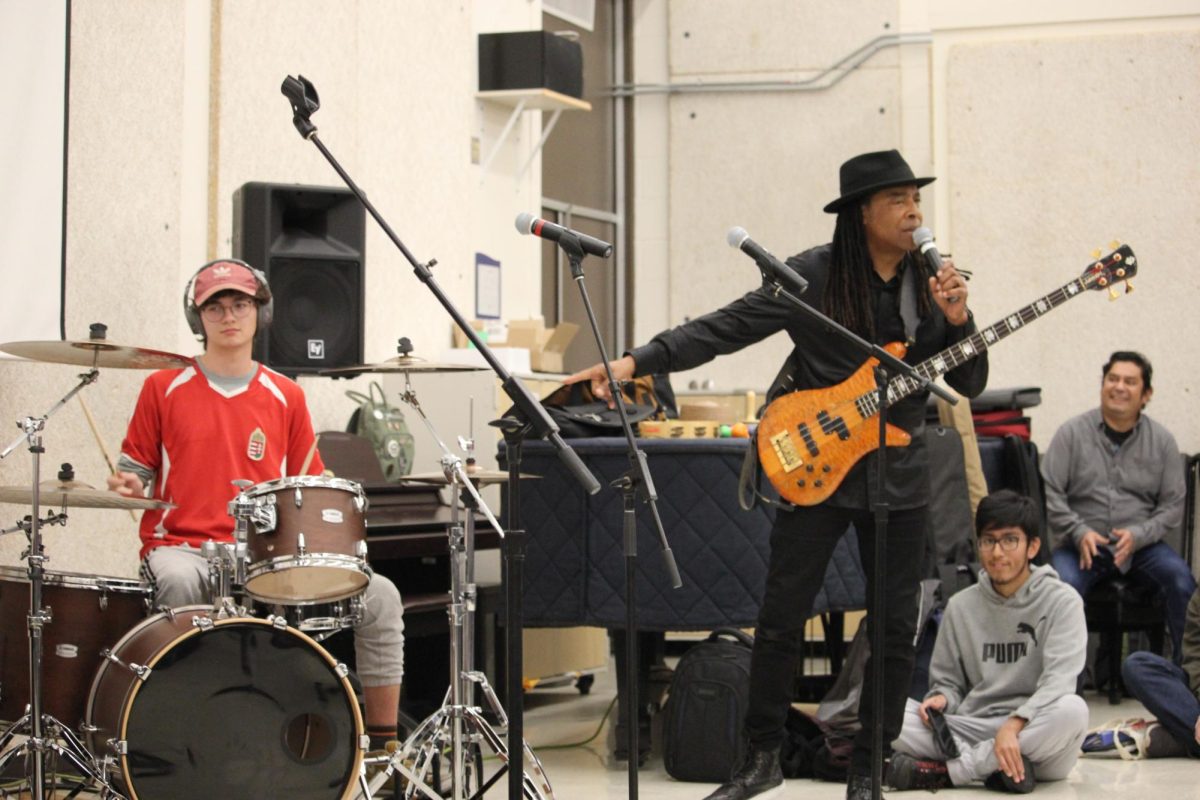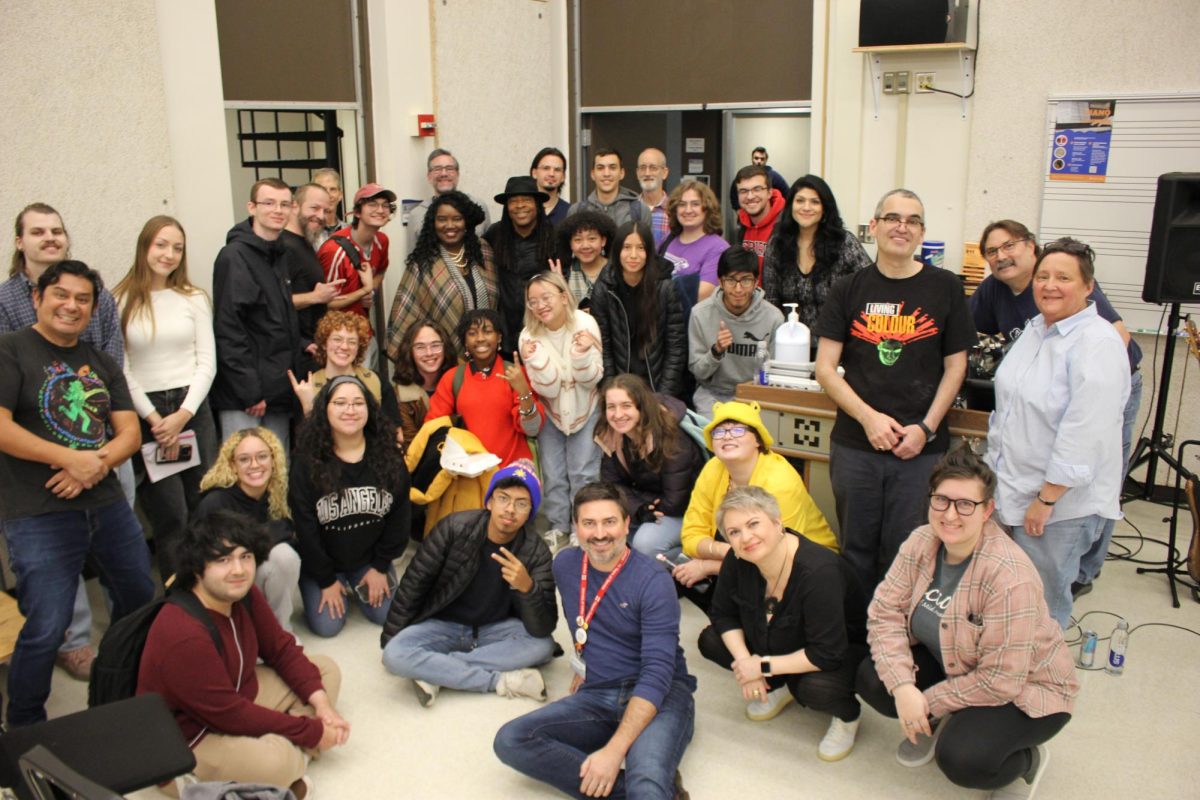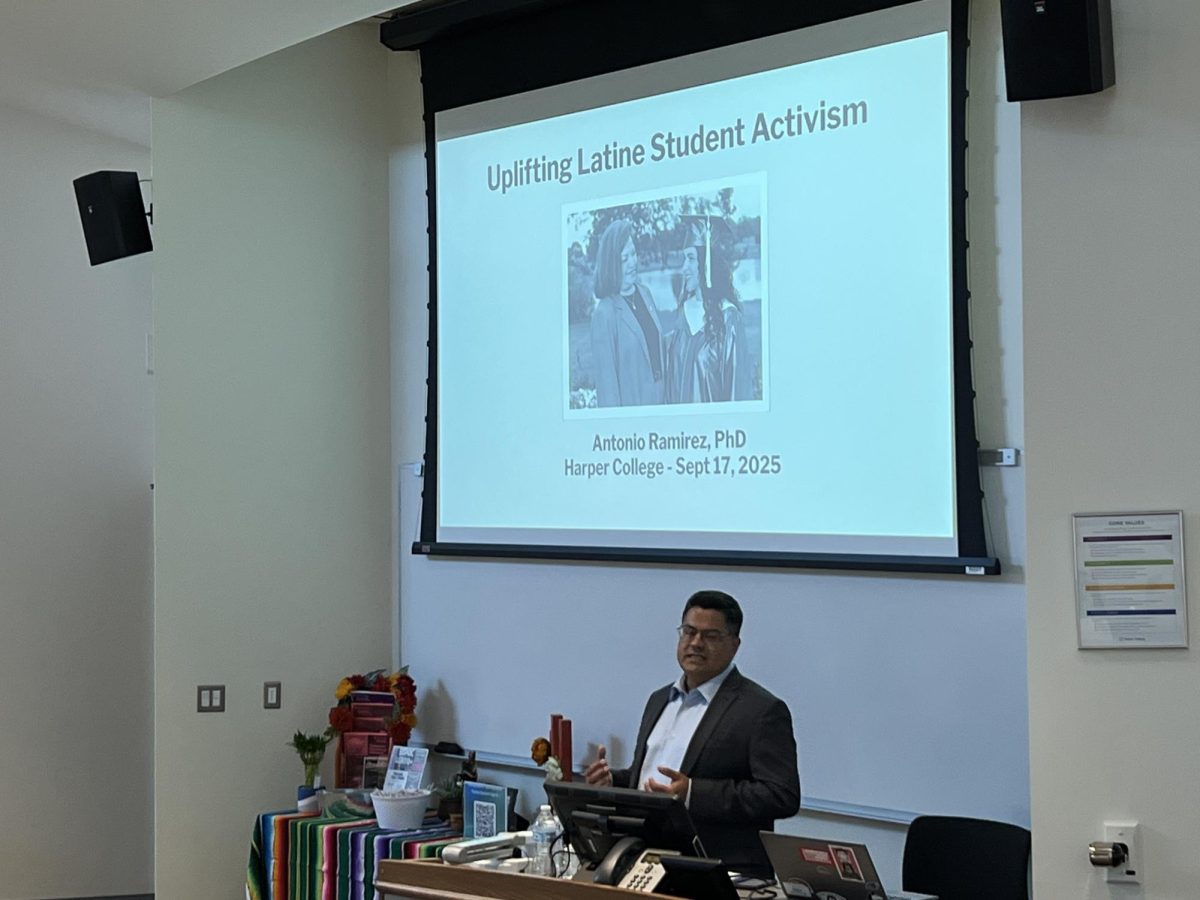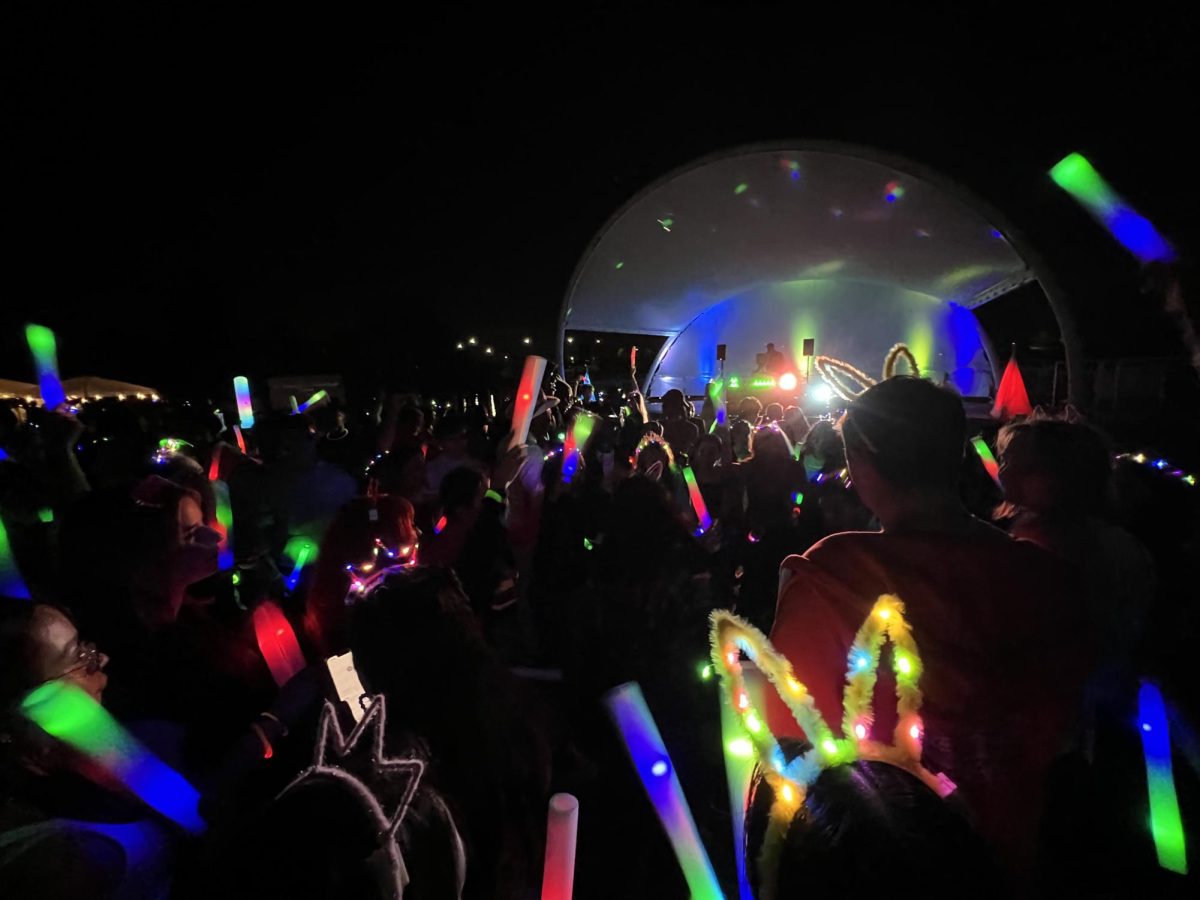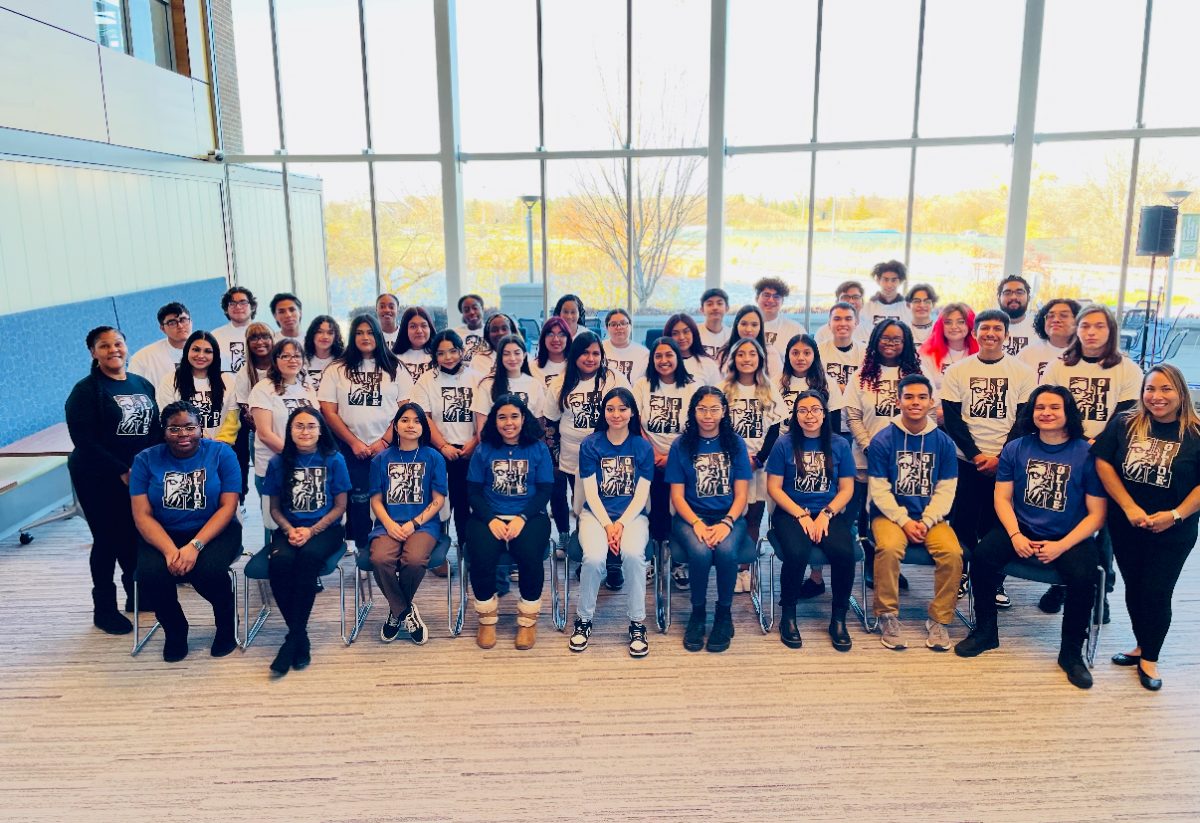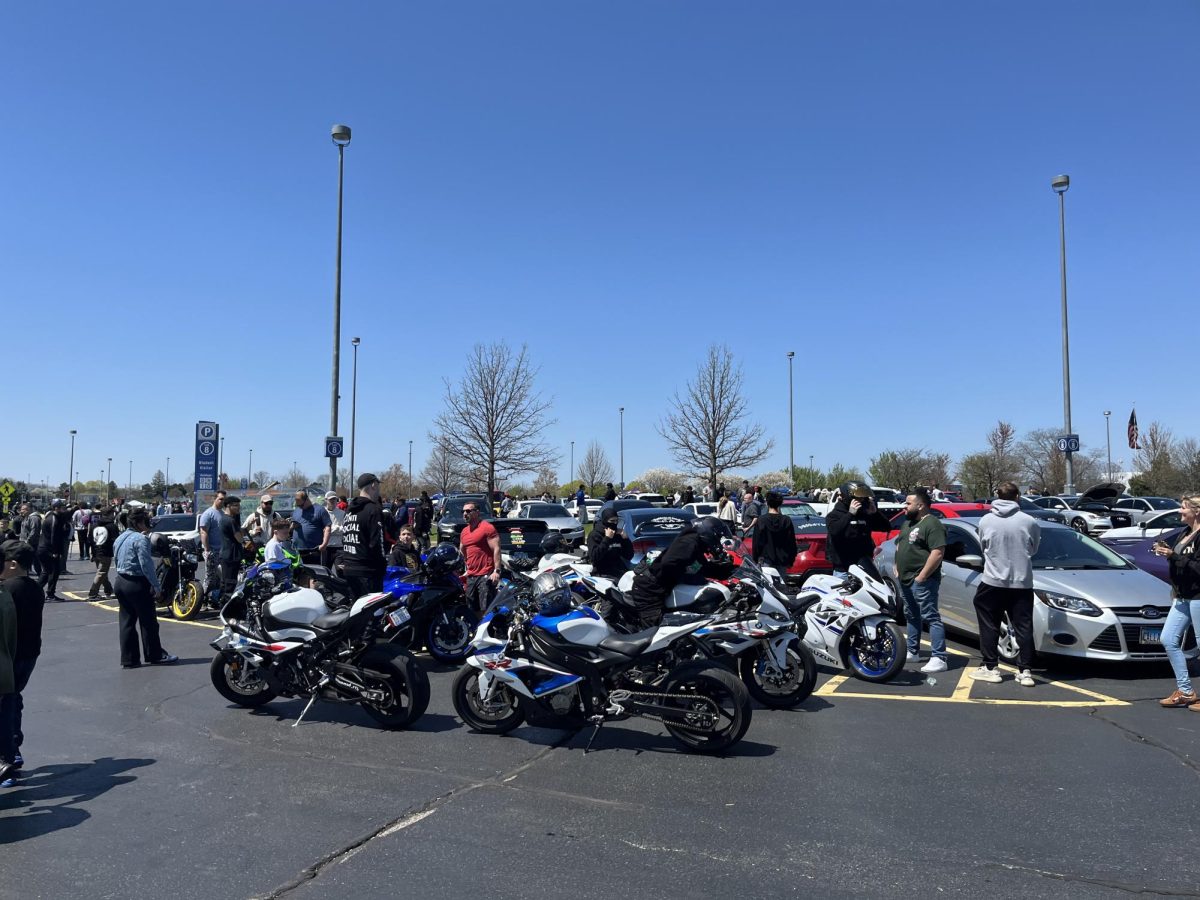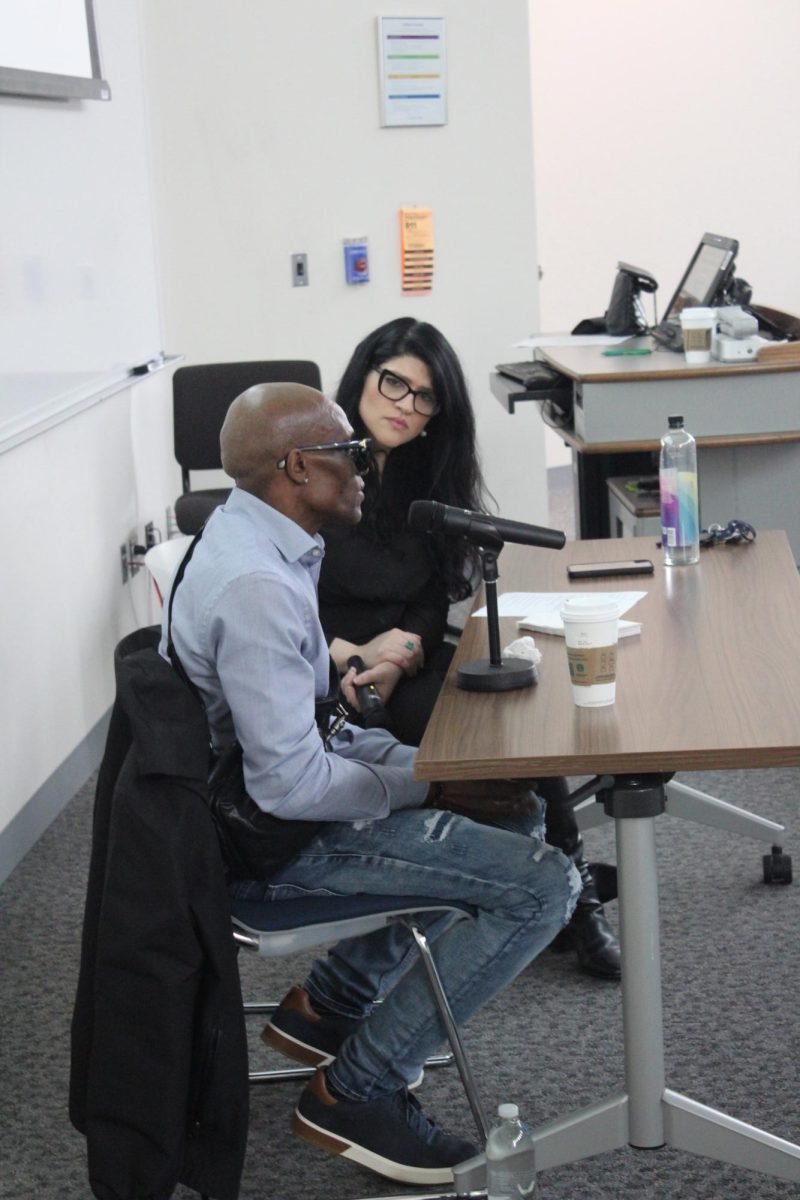In a packed room full of nearly one hundred students and staff, hip-hop history came alive on Harper’s campus. Doug Wimbish, the bassist of Grammy-winning band Living Colour, celebrated fifty years of the genre’s emergence with a jam session and storytelling.
Event organizers invited Wimbish as a pioneer in hip hop music given his creative roots and ties to some of the most iconic and original hip hop records.
“I’ve been a fan of Living Colour, Doug’s band, since I was your age,” said Brian Cremins, who is English faculty and one of the main event organizers. “That was what made me want to play guitar, so to have him here is such an honor. It’s very emotional, and I’m so glad to see everybody smile.”
On Nov. 2, room P205 and the hallways around it echoed with the sound of Wimbish’s bass. He elaborated on how the original influencers of hip-hop music worked together to create popular music quickly: riffing and layering sounds until a song formed.
Wimbish began with a solo loop set and used a small glass bottle to create rhythmic, droning sounds with his bass. As the loop continued, Wimbish had audience members shouting, headbanging and bobbing along to the freshly born track.
Soon, Wimbish began to call up volunteers, and audience members leapt at the chance to jam.
Student Maddox Nadas came to the event with hopes of drumming with Wimbish. The rookie drummer said he started practicing a month prior to be able to participate.
“Effervescent. That was the only word to describe it, man,” Nadas said. “I wish I was up there longer. I wanted to do more drumming and stuff like that. I loved it.”
Wimbish worked side-by-side with the students to hone their jamming skills, coaching them to the beat or showing them how to play. He picked Jay Lavalsaint out of the crowd and had her play for the better part of the jam session.
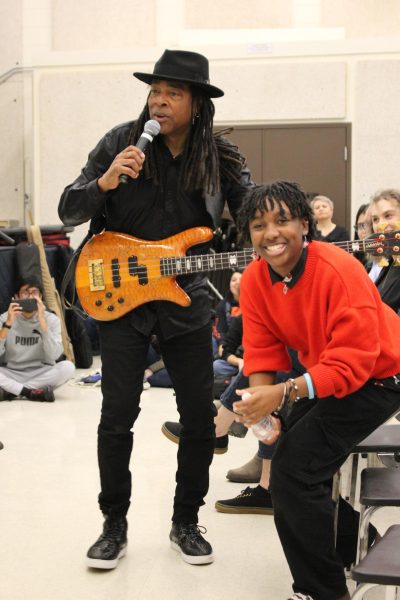
Lavalsaint didn’t intend on going up to the front of the room; she hadn’t picked up a bass in a while.
“My friend kind of volunteered me to go up there and told him I knew how to play bass, even though I didn’t feel confident in my skills.” Lavalsaint said, “I didn’t feel nervous or like I was going to be humiliated.”
She played alongside Wimbish, who organized the harmonious chaos. Volunteers from the audience joined him and danced, sang, shook egg shakers and played instruments. The music built upon itself as sounds and voices layered and attempted to harmonize. Even Harper president Dr. Avis Proctor was handed a mic to sing along.
“I should get a bass,” Lavalsaint remarked. “I tried to learn bass before, but it wasn’t mine, and now I’m going to intentionally get one so I can really learn.”
Before the jam, Wimbish spoke to those in attendance about how important it is for artists to find “the spark” of passion in their craft. For him, it came in 1974 when he visited his cousins in Nassau, where they joked that he looked like Jermaine Jackson of the Jackson 5. He realized he wasn’t interested in imitating someone else but instead wanted to forge his own legacy.
The 67-year-old’s professional music career started in the 1970s with the disco/funk group Wood, Brass & Steel, and after their second album was shelved, he caught the eye of label executives at the newly formed Sugar Hill Records. There, he played as an in-house studio bassist for multiple influential groups, including The Sugar Hill Gang and Grandmaster Flash & The Furious 5, before moving onto Living Colour and the solo work that followed.
“It’s an ongoing universal expansion. From the time hip-hop started, which was in 1973 with Kool Herc, Coke La Rock, Afrika Bambaataa, Grandmaster Flash. It was an explosion,” Wimbish explained. “And it has really been continuing to expand from fashion to aerosol art to break dancing to designers to poets to singers and players. It’s just an expanding universe, and I’m glad to see it.”
He toured with The Sugarhill Gang overseas– the first time in history a hip-hop group did so– and likened playing Rapper’s Delight in front of a live crowd concert to being like getting to play with The Beatles. Wimbish is often mistaken for the bassist on the studio recording of Rapper’s Delight; in reality, he plays the iconic bassline on their subsequent hit, Apache.
Since then, he’s played with Ms. Lauryn Hill, Mos Def, George Clinton, Mick Jagger & The Rolling Stones, Depeche Mode, Madonna, Carly Simon, Questlove, Seal and Miles Davis, among many other notable musicians.
Wimbish is also proud to host the annual WimBash event since 2004, where he brings together friends, collaborators and local bands to perform. The WimBash is all about putting ego aside and giving back to the communities they perform in, with a key focus on fundraising for foundations like the DREAM (Directing through Recreation, Education, Adventure, and Mentoring) Program and school music programs in need.
“I’m happy to have played with the kids today here. Because my life is always a consistent journey, and I’ve been fortunate to work with a lot of folks,” said Wimbish. “It didn’t come easy; it came by being around other folks that inspired me. But honestly? I’m about the moment. Right now. I don’t know what’s going to happen tomorrow, but I know right now today I was looking forward to coming here and spending time with the folks here at Harper.”


